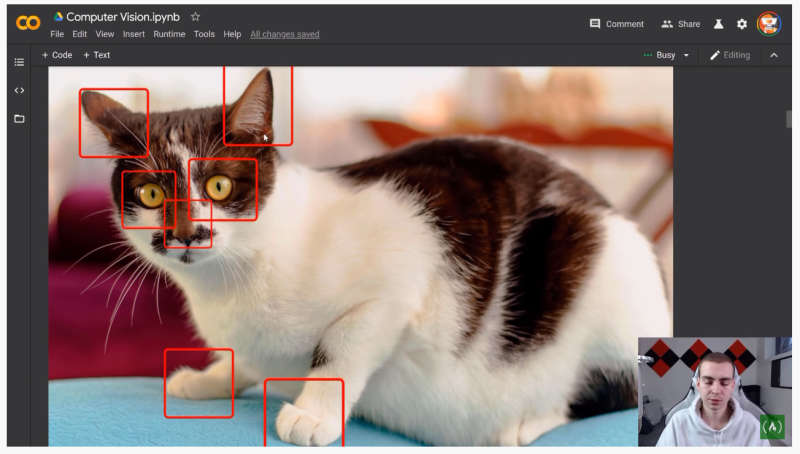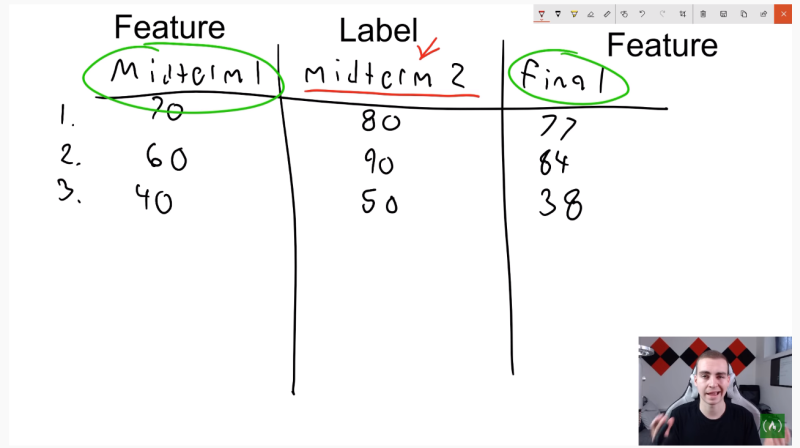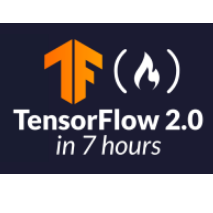| Tensorflow 2.0 In 7 Hours |
| Written by Nikos Vaggalis | |||
| Friday, 20 March 2020 | |||
|
Learn all about Tensorflow with this new 7-hour, information-packed and free course that not only shows how to apply Tensorflow 2.0 in your programs, also teaches the concepts of Machine Learning, AI and their core algorithms. All that in a simple and hands-on way. While it makes the concepts of ML and AI approachable,this video-based course is not addressed to total beginners at coding as it presumes at least basic knowledge in Python. Delivered on You Tube by Tim, well known for his Tech with Tim channel, Tensorflow 2.0 In 7 Hours was created in conjunction with FreeCodeCamp. It begins with the simple fundamentals but as it progresses it becomes increasingly involved with more advanced topics, the epitome being that of reinforcement learning. The concepts are demonstrated with practical cases such as applying the algorithms to computer vision and natural language processing code.
Its eight modules are: Module 1: Machine Learning Fundamentals Module 2: Introduction to TensorFlow Module 3: Core Learning Algorithms
Module 4: Neural Networks with TensorFlow Module 5: Deep Computer Vision - Convolutional Neural Networks Module 6: Natural Language Processing with RNNs Module 7: Reinforcement Learning with Q-LearningThis technique is different than many of the other machine learning techniques covered earlier in the course. Rather than feeding our machine learning model millions of examples we let our model come up with its own examples by exploring an environment. Module 8: Conclusion and Next Steps There are plenty of advantages of attending such a course. First you learn about the concepts of AI and ML which are trendy as well as skills highly sought after by employees.On top of that you learn those along with Python,the most popular and versatile language, also highly sought after. For instance, computer vision with convolutional neural networks and natural language processing with recurrent neural networks are hot topics covered in the course.
Also let's not forget that you won't need to get behind the obscure math governing ML, instead you use Tensorflow which hides that complexity, offering an API in essence to the algorithms. So you ask,"where's the code?" accompanying the videos. Here's yet another example of catering for the course's audience.There are six Jupyter notebooks which contain extensive notes, instructions, diagrams and of course the code. What's more you don't have to install and run anything on your PC as everything is hosted on Google's Colaboratory platform, that way allowing running all the code inside your browser. Further, considering that training NN's is a CPU intensive and resource hungry task, using Google Colaboratory leverages Google's servers' power rather than stressing your own PC's resources.
Closing up, it's important to note that libraries like Tensorflow make working with AI increasingly easier because they encapsulate all the logic so you don't have to, to the extent that that your AI skills are worth less than you think. As ex-Googler, Ryszard Szopa, puts it: As exciting as the progress is, it’s bad news for both companies and individuals who have invested heavily in AI skills. Today, they give you a solid competitive advantage, as training a competent ML engineer requires plenty of time spent reading papers, and a solid math background to start with. However, as the tools get better, this won’t be the case anymore. It’ll become more about reading tutorials than scientific papers. If you don’t realize your advantage soon, a band of interns with a library may eat your lunch. Furthermore a recent research by Google found that many developers are put off of trying ML because they assume that they should also be knowledgeable in advanced math,leading to adopting the imposter syndrome.This wasn't the case however: Developers often attributed these challenges to their own lack of experience in advanced mathematics. Ironically, despite the abundance of non-experts tinkering with ML frameworks nowadays, many felt that ML frameworks were intended for specialists with advanced training in linear algebra and calculus, and thus not meant for general software developers or product managers. This semblance of imposter syndrome may be fueled by the prevalence of esoteric mathematical terminology in API documentation, which may unintentionally give the impression that an advanced math degree is necessary for even practical integration of ML into software projects. Though math training is indeed beneficial, the ability to grasp and apply practical concepts (e.g., a model’s learning rate) to real-world problems does not require an advanced math degree. Courses like this that show how to apply the AI libraries for your own purpose are really valuable Better still then that this one is free and hosted on Freecodecamp's Youtube channel. Get it while it lasts! More InformationTensorFlow 2.0 in 7 hours YouTube TensorFlow 2.0 in 7 hours - Code Related ArticlesTensorFlow 2 Offers Faster Model Training Deep Learning from the Foundations FreeCodeCamp - Not Just A Bootcamp To be informed about new articles on I Programmer, sign up for our weekly newsletter, subscribe to the RSS feed and follow us on Twitter, Facebook or Linkedin.
Comments
or email your comment to: comments@i-programmer.info |
|||
| Last Updated ( Friday, 20 March 2020 ) |





